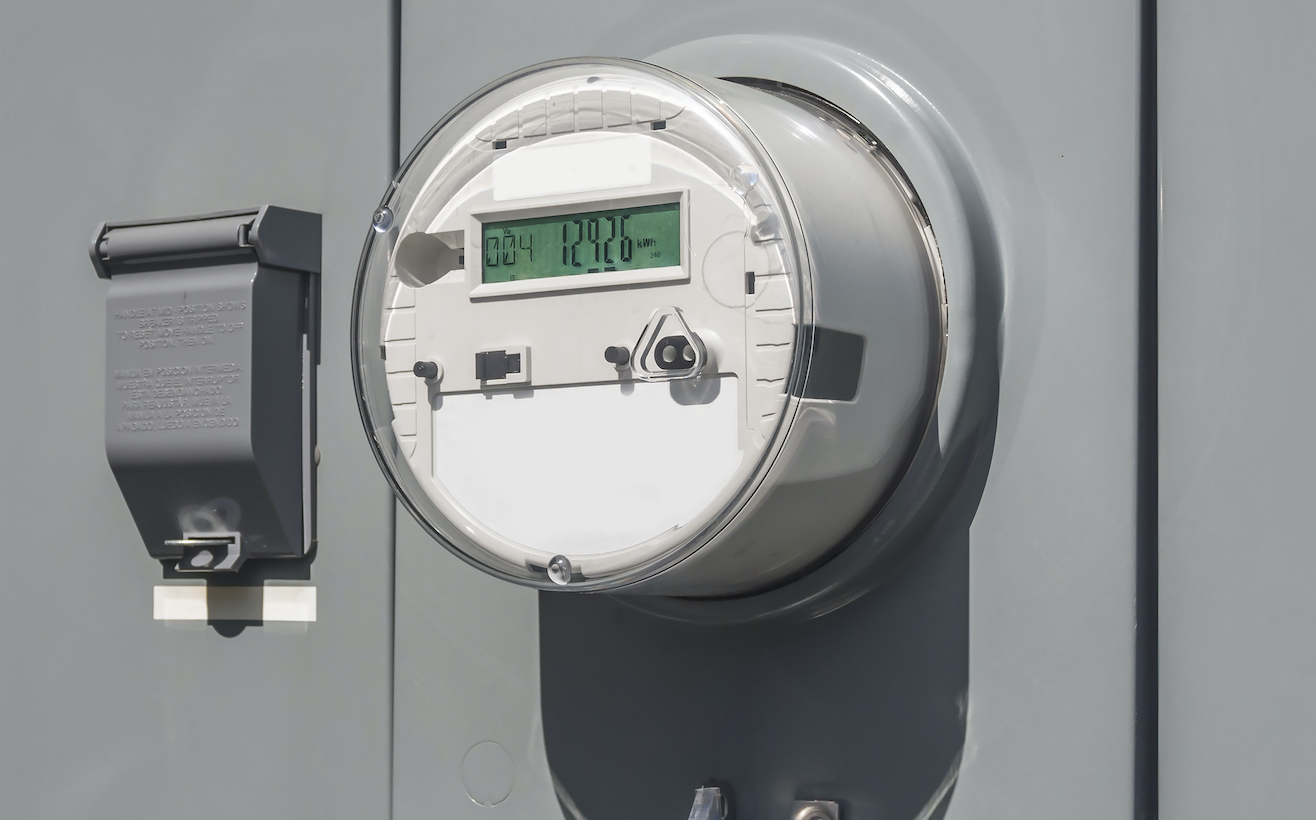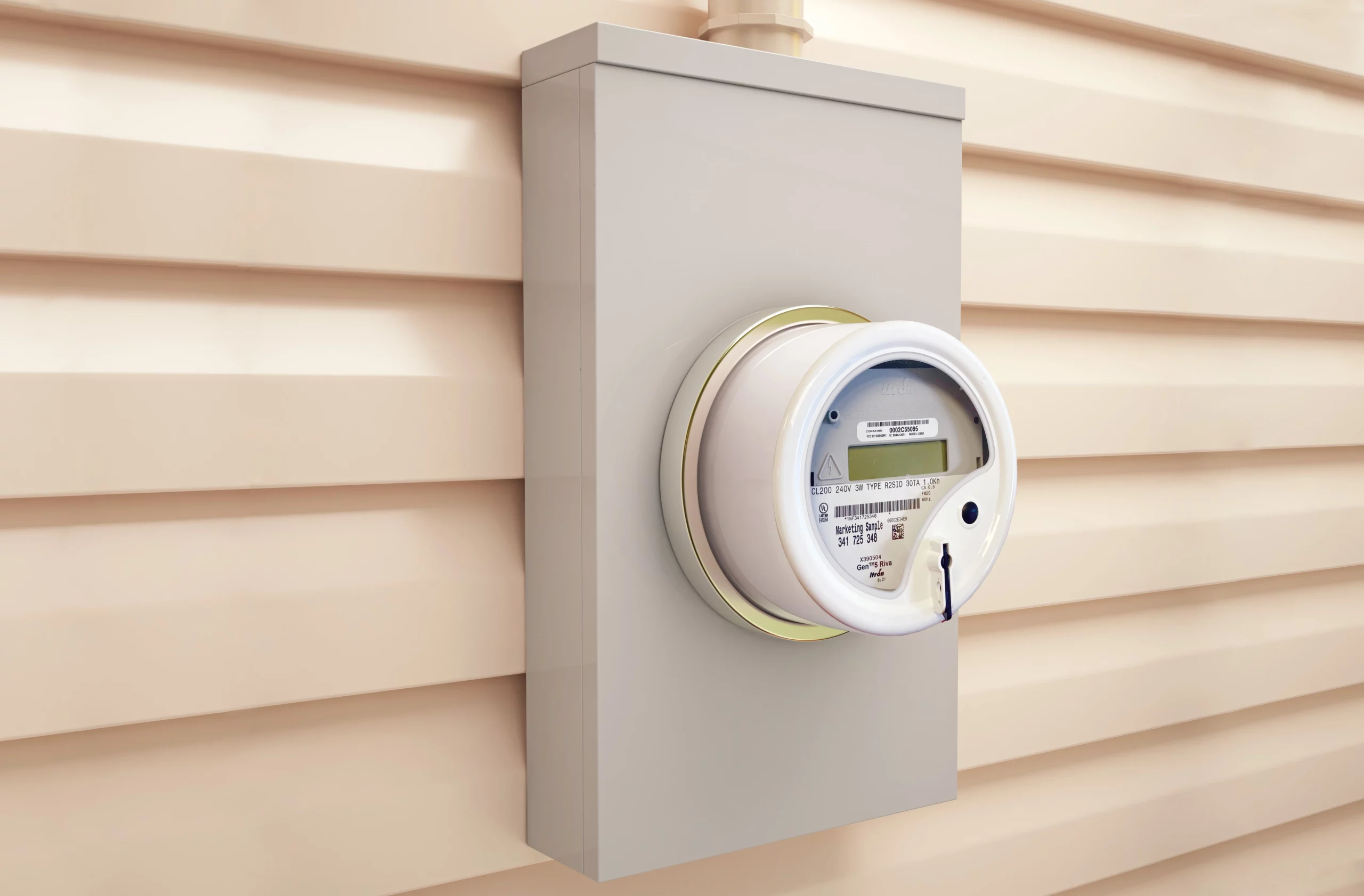This article is your guide to finding out what a smart meter is. A smart meter is a digital electric meter that gets real-time data and helps tracking your electricity usage so much easier. Many homeowners are investing in new tech to get a better hold on their electric bills, with smart meters being one of them!
So, if you’d like to learn more about smart meters, keep reading.
Here at The Energy Professor, we want to give you the information you need to not only save money on your energy bill but to also become more energy efficient. We hope find this post helpful! It makes it easier for you to know more about smart electric meters. Be sure to also check out our one-of-a-kind energy savings calculator!
The Energy Professor Electricity Rate Check Tool
What is a Smart Meter?
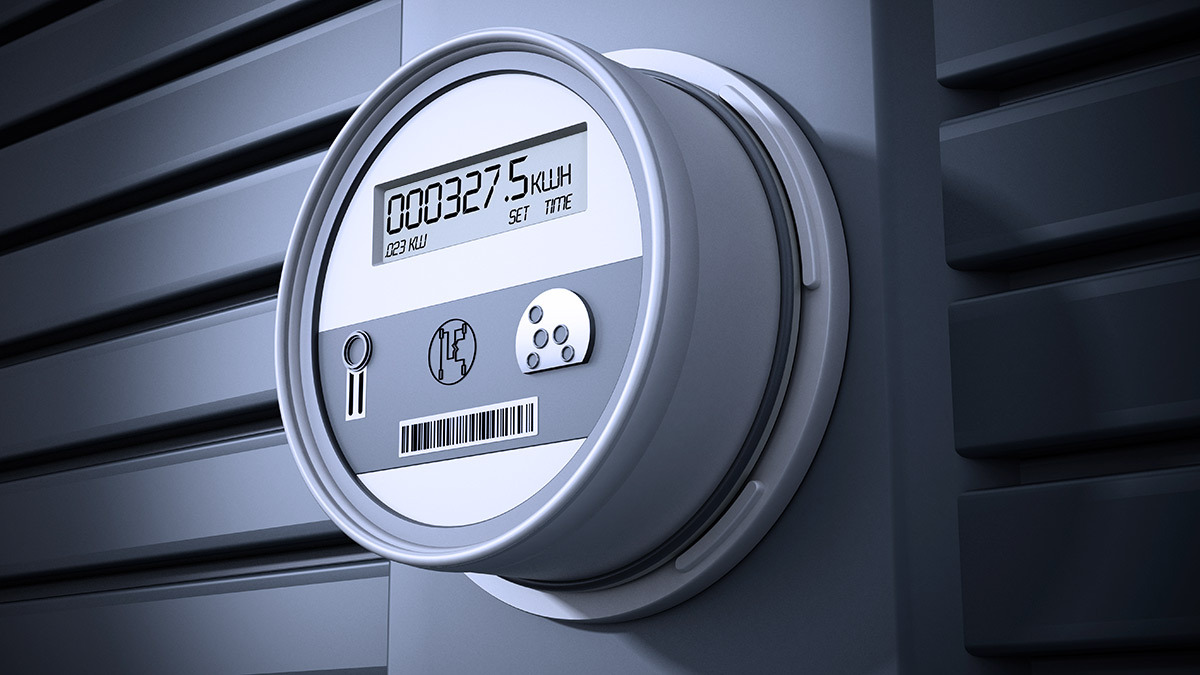
Smart meters are digital electric meters that read personal energy consumption from your home or business. A digital electric meter is a meter that can send your energy usage directly to your utility company. Like a traditional house electric meter, your new smart meter is attached to your house and requires little to no maintenance. This device won’t tell you what’s using the most electricity in your home, but it can do a slue of other things that make your life easier! With a smart energy reader, you can have access to real-time energy usage. Most units update every 15 minutes but some can update once every hour. Your smart meter can also report power outages faster and result in a quicker response time when restoring your energy.
What Does a Smart Meter Look Like?
Smart meters typically have a white or gray face with a digital LCD screen. The display will also read the amount of kWh used and sometimes convey the time. All traditional energy readers have dials like an analog clock. There will also be an energy reader who comes out to manually read your meter. This is not necessary with an electric smart meter. It’s also worth looking into your local government energy programs to see if a smart electric meter can be added to your home. There are state programs that offer to install a smart meter to help energy providers run more efficient businesses.
Related Post: Tips on How to Lower Your Energy Bill
How Can You Save Energy with a Smart Meter?
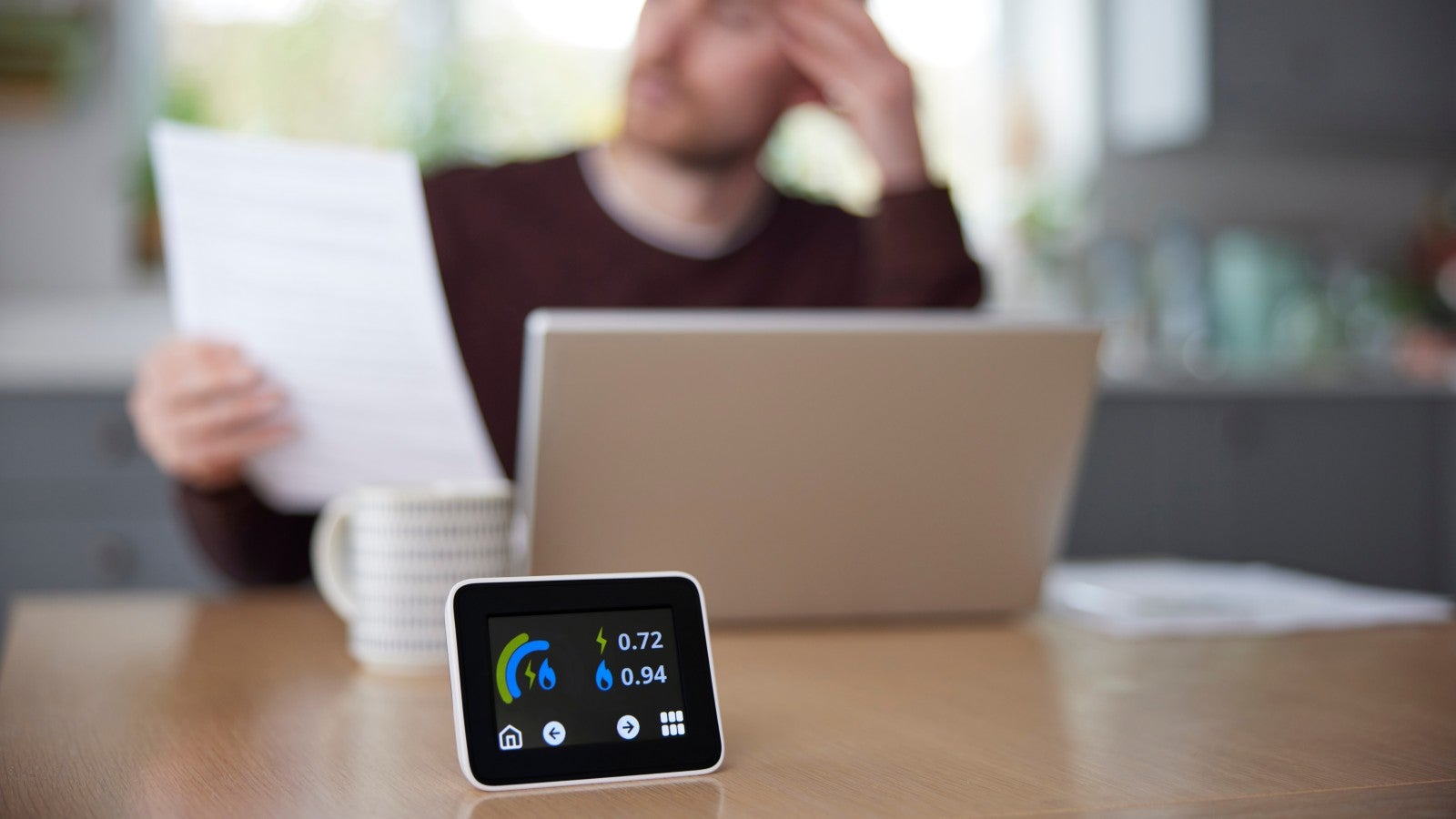
You do not directly save energy by switching to a smart power meter. With that being said, you can track your energy consumption much more conveniently than with traditional analog meters. This makes making changes in your daily life and seeing them reflected almost instantly! This is a great way to see what works and doesn’t work to your benefit when looking to save energy. We find an electricity smart meter is also helpful by tracking how much energy daily tasks consume.
For example: Begin to record how many kWh are used before and after you do laundry. Then change up when or how much laundry you do and record those kWhs as well. Doing this lets you see which way of doing laundry has the biggest impact on your wallet.
How to Track Usage on Your Smart Electricity Meter
- The easiest way to monitor your energy usage is to have an in-home display (IHD) device connected to your meter. An IDH is a small, in-home device that displays the usage of your smart electrical meter.
One of the biggest benefits of switching to a smart energy meter is the ability to track your usage. Using an IDH can make it simple to track usage by having the device in your home and making it no longer necessary to go outside to track your usage manually. The digital face on the IDH and the smart meter reader display up-to-date information on the energy you’ve used. Typically this information is updated every 15 minutes. But depending on the type, brand, and model you have, it may update every hour.
Related Post: When is the Best Time to Do Laundry?
What’s the Downside of Using a Smart Meter?
Known to Cause Fires
One of the most concerning issues associated with smart electric meters is the potential fire risk. Although rare, there have been incidents where faulty installations or manufacturing defects have led to fires. The causes can include:
- Faulty Installation: Improper installation by inexperienced or unqualified technicians can lead to electrical faults.
- Manufacturing Defects: Defective components within the meter itself can overheat and cause fires.
- Overloaded Circuits: In some cases, the introduction of smart meters has coincided with overloaded circuits, potentially leading to fire hazards.
Homeowners should ensure that their smart meters are installed by certified professionals and that regular maintenance checks are conducted to mitigate this risk.
Low Levels of Radiation
Smart meters use wireless technology to transmit data to utility companies, which involves the emission of low levels of radiofrequency (RF) radiation. Concerns about radiation include:
- Health Concerns: Some individuals worry about potential health risks associated with prolonged exposure to RF radiation, such as headaches, insomnia, or other health issues. However, it’s important to note that the levels of RF radiation emitted by smart meters are typically well below the safety limits set by regulatory bodies like the Federal Communications Commission (FCC).
- Electromagnetic Interference: There is also concern about interference with other electronic devices, although this is generally minimal.
Additional Fees Through Your Energy Provider
Switching to a smart meter can sometimes lead to unexpected costs, such as:
- Installation Fees: Some utility companies charge a fee for the installation of smart meters.
- Opt-Out Fees: In areas where smart meters are mandated, customers who wish to opt-out and keep their traditional meters may be subject to additional charges.
- Maintenance Fees: Some utilities include maintenance fees for the upkeep of the smart meter infrastructure.
Homeowners should review their utility provider’s policies and understand any potential costs associated with upgrading to or maintaining a smart meter.
Privacy Concerns
The detailed energy usage data collected by smart meters can lead to privacy concerns, including:
- Data Security: The transmission of energy usage data over wireless networks raises concerns about data security. If not properly encrypted, this data could be intercepted by unauthorized parties.
- Surveillance: Some people fear that the detailed data collected by smart meters could be used to monitor their daily activities, such as when they are home or away, which could be a concern for personal privacy.
Utility companies are typically required to adhere to strict data protection regulations to safeguard customer information, but consumers need to be aware of these concerns.
Anxiety Over How Much Energy You Use
The real-time data provided by smart meters, while beneficial for tracking and reducing energy consumption, can also cause anxiety for some users:
- Energy Usage Awareness: Constantly monitoring energy use can lead to stress or anxiety about high energy consumption and associated costs.
- Behavioral Changes: Some individuals may feel pressured to alter their behavior excessively to reduce energy use, potentially leading to discomfort or inconvenience.
Users need to find a balance and use the data provided by smart meters constructively, without letting it negatively impact their mental well-being.
Related Post: What is a Watt-hour?
Smart Meter vs. Regular Meter
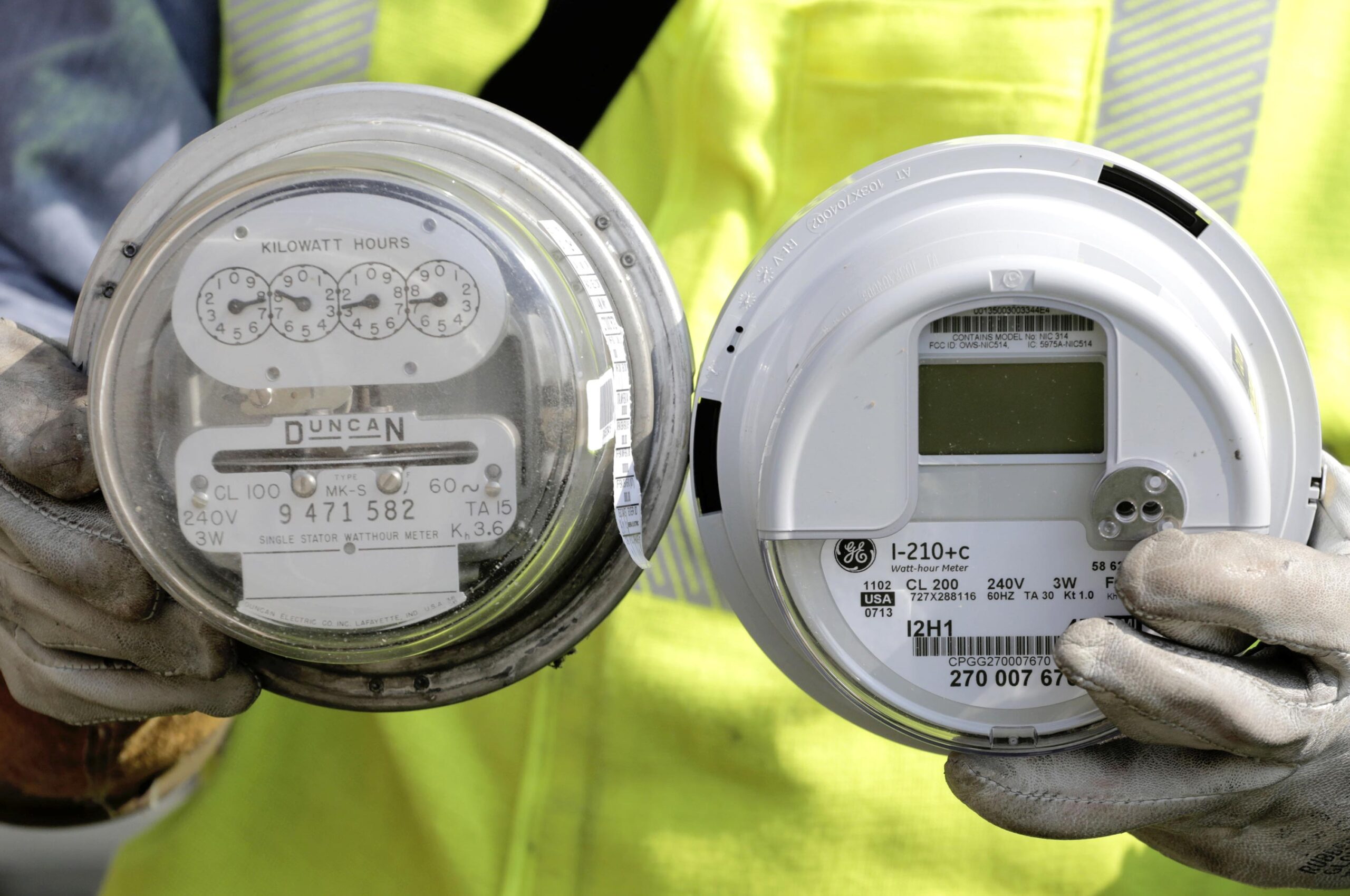
A traditional meter for electricity requires an employee from your utility provider to come out and physically record the usage displayed on the front of the meter. A smart meter is very similar to the traditional meter on your home in that it measures and records energy consumption data. However, the smart meter differs because it’s a digital device that can communicate remotely with your utility provider. It will send your consumption information to your utility every 15 minutes to one hour and eliminates the need for a meter reader.
Related Post: Electric Delivery vs Supply
What is a Smart Meter FAQ

Q: Are Smart Meters Free?
A: Yes! Smart meters are installed for free as part of a government program. However, the cost of their installation is essentially absorbed into everybody’s energy bill. This is why consumers can opt out of switching the type of meter their home uses.
Q: Are Smart Meters Required?
A: No, there is no requirement to install a smart meter. But local government roll-outs mean that homes in the US will be offered a smart meter by the end of 2025. Whether you’re a homeowner, or tenant or have a prepaid meter, your energy supplier is responsible for providing and installing a smart meter for you. If you’d rather not have one, don’t worry, you’re under no obligation to have one installed.
Q: How do Smart Meters Work?
A: These electric meters automatically track your energy usage. The usage is then sent to your energy supplier via a dedicated network just for smart meters.
Q: Are Smart Meters Secure?
A: Smart meters have their own secure, wireless network and don’t use the internet. There are also strict laws in place that prohibit energy suppliers from passing on information to third parties without the customer’s permission. Personal details like your name and address aren’t stored on your smart meter. The information collected by your meter is only used to calculate an accurate energy bill. This means that smart meters are no more of a threat to your privacy than another smart devices.
Do you Need Cheaper Electricity?
If you’ve taken the time to understand the information on your bill and discovered you’re paying more than you’d like for your electricity, have you looked around for a cheaper deal? The Energy Professor has a wealth of information on ways to save on your utilities, including details of top deals that could significantly reduce your monthly or quarterly electricity bills.
We hope you found this article helpful! If you are looking for ways to increase energy efficiency and sustainability in your home be sure to take a look at all of the latest renewable energy options in your area. The Energy Professor helps residential and small business owners find qualified energy suppliers in New York, New Jersey, Pennsylvania, Texas, Ohio, Maryland, Illinois, and Massachusetts.

